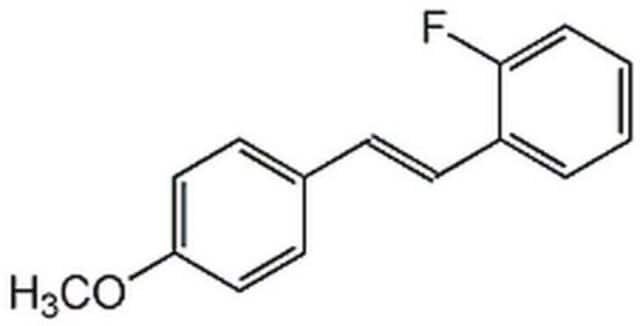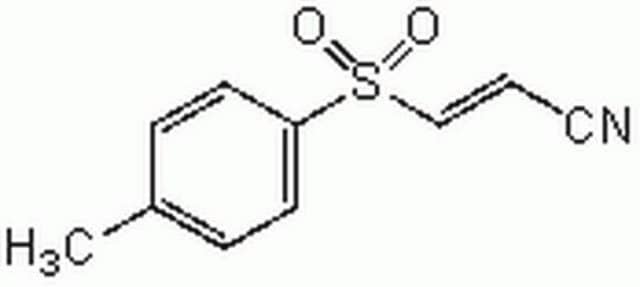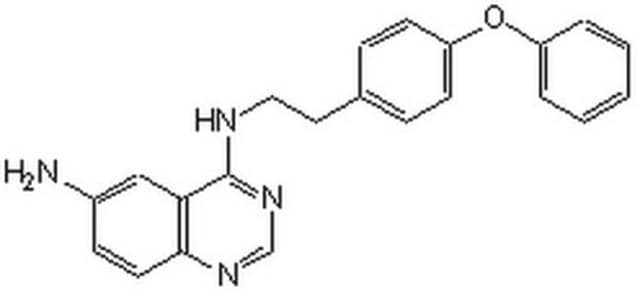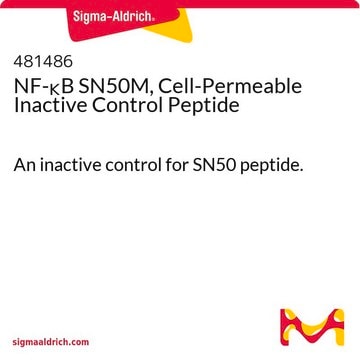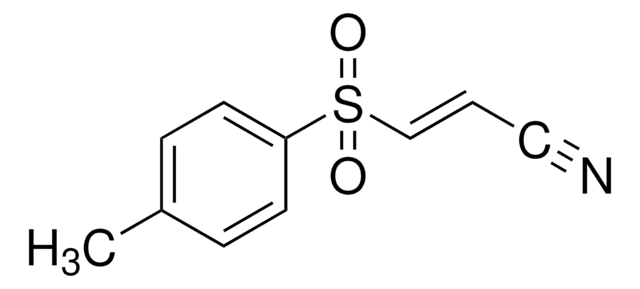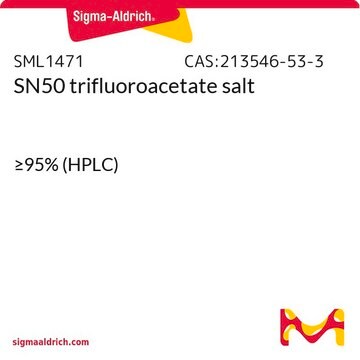481480
NF-κB SN50
≥97% (HPLC), lyophilized, NF-κB translocation inhibitor, Calbiochem®
Sinónimos:
NF-κB SN50, Cell-Permeable Inhibitor Peptide
About This Item
Productos recomendados
product name
NF-κB SN50, Cell-Permeable Inhibitor Peptide, NF-κB SN50, CAS 213546-43-3, is a cell-permeable peptide that contains the NLS sequence of NF-κB p50 linked to the hydrophobic region of K-FGF. Inhibits translocation of the NF-κB into the nucleus.
Quality Level
assay
≥97% (HPLC)
form
lyophilized
manufacturer/tradename
Calbiochem®
storage condition
OK to freeze
desiccated (hygroscopic)
solubility
water: 5 mg/mL
shipped in
ambient
storage temp.
−20°C
General description
Biochem/physiol Actions
translocation of the NF-κB active complex into the nucleus
Warning
Sequence
Physical form
Reconstitution
Other Notes
Legal Information
Certificados de análisis (COA)
Busque Certificados de análisis (COA) introduciendo el número de lote del producto. Los números de lote se encuentran en la etiqueta del producto después de las palabras «Lot» o «Batch»
¿Ya tiene este producto?
Encuentre la documentación para los productos que ha comprado recientemente en la Biblioteca de documentos.
Nuestro equipo de científicos tiene experiencia en todas las áreas de investigación: Ciencias de la vida, Ciencia de los materiales, Síntesis química, Cromatografía, Analítica y muchas otras.
Póngase en contacto con el Servicio técnico